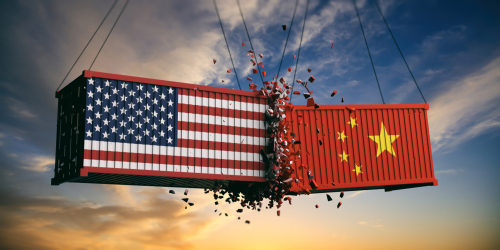Donald Trump believes tariffs could offset taxes, but tariffs will be a tax in itself to the American consumer. Trump is proposing to raise taxes from 60% to 100% on Chinese goods. He would also like to implement a universal tariff from 10% to 20% on all international imports. Ultimately, the consumer will end up paying the bill to offset these increase.
“If we get tariffs, we will pass those tariff costs back to the consumer,” AutoZone CEO Philip Daniele said, adding that the company will protect itself by raising prices before the tariffs take effect. Countless companies have come out to say that they will absolutely pass on the added cost to their consumers. It is not as simple as moving manufacturing out of China or to America.
“If we look back historically when tariffs were enacted seven years ago, it did result in higher prices for customers,” Walmart CFO John David Rainey said. “We’re concerned that significantly increased tariffs could lead to increased costs for our customers at a time when they are still feeling the remnants of inflation.”
Lowe’s expressed similar concerns. “Roughly 40% of our cost of goods sold are sourced outside of the US, and that includes both direct imports and national brands through our vendor partners,” said CFO Brandon Sink. “And as we look at potential impact, certainly would add product costs, but timing and details remain uncertain at this point.”
The National Retail Federation (NRF) conducted a study that revealed Trump’s proposed tariffs could cost US consumers between $46 billion and $78 billion annually, with the average household paying between $362 to $624 more on goods per year. The NRF called these proposed tariffs a “tax on all Americans,” and noted that lower-income Americans, who often purchase cheaper goods produced in China, will be disproportionately affected. The federation believes apparel costs will rise from $13.9 billion to $24 billion, footwear will rise to $10.7 billion from $6.4 billion, travel goods will increase to $3.9 billion from $2.2 billion, furniture will average $13.1 billion more compared to the current $8.5 billion, and household appliances will increase to $10.9 billion from $6.4 billion.
“A tariff is a tax paid by the U.S. importer, not a foreign country or the exporter. This tax ultimately comes out of consumers’ pockets through higher prices,” Jonathan Gold, NRF VP of Supply Chain and Customs Policy, stated.
Trump believes that these tariffs will bring manufacturing back to America and force companies to hire American. While the US desperately needs to boost its manufacturing sector, these tariffs are simply not the solution. Companies may seek to reduce their own reliance on US goods. China in particular will retaliate and they do so with precision as we have seen with their previous targets on agriculture products that the US relies on like pork and soybeans.
Imposing high tariffs can disrupt global supply chains and negatively impact international trade relationships. I disagree with the mercantilism approach that focuses on maximizing exports while minimizing the need for imports through tariffs and other barriers. Not only is US manufacturing not set up for this model at this time, but it is also absolutely counterproductive to global trade. Not to mention that China’s middle class is set to outpace America’s. They have a far larger population and America may no longer be the primary country that other nations line up to sell to.
Tariffs never promote peace. Rome lasted over 1,000 years because it had FREE TRADE. Rome was not corrupt everyone benefitted. As long as the PEOPLE are trading back and forth, they provide check and balance against government to create peace.
